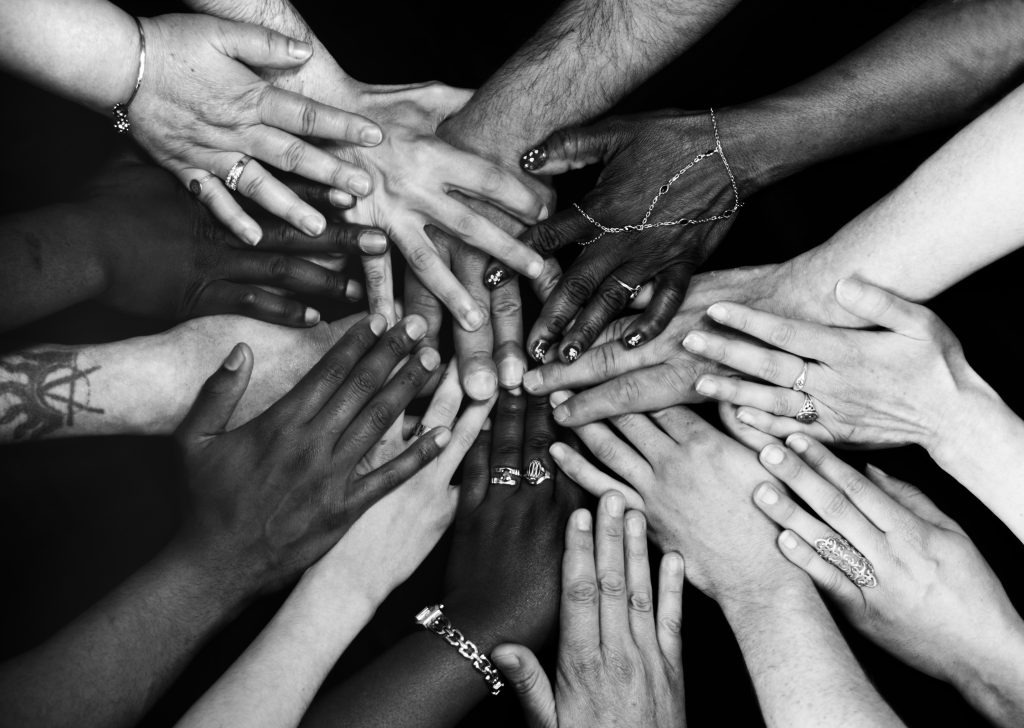About Faith for Rights
The “Faith for Rights” framework facilitates exploring the relationship between religions, beliefs and human rights. It is suggested for use by faith actors, academic institutions, training experts and others who are interested in furthering the cause of faith and rights. Each of the 18 modules contains peer-to-peer learning exercises, examples, and suggestions for interfaith groups to adapt to their local needs.


The Beirut Declaration
In 2017, the Beirut Declaration on “Faith for Rights” expressed that individual and communal expression of religions or beliefs flourish in environments where human rights, based on the equal worth of all individuals, are protected. Similarly, human rights can benefit from deeply rooted ethical and spiritual foundations provided by religions and beliefs. The Beirut Declaration contains 18 commitments that reach out to theistic, non-theistic, atheistic or other believers in all regions of the world to enhance cohesive, peaceful and respectful societies on the basis of a common action-oriented platform.
Lorem ipsum dolor sit amet, consectetur adipiscing elit. Ut elit tellus, luctus nec ullamcorper mattis, pulvinar dapibus leo.
The 18 Commitments on Faith for Rights
- To stand up and act for everyone's right to free choices, particularly for everyone's freedom of thought, conscience, religion or belief.
- To use the declaration on "Faith for Rights" as a minimum standard of interaction between theistic, non-theistic, atheistic or other believers.
- To promote constructive engagement on the understanding of religious texts through critical thinking and debate on religious matters.
- To prevent the notions of "state religion" and "doctrinal secularism" from being used to discriminate or reduce the space for diversity of religions and beliefs.
- To ensure non-discrimination and gender equality, particularly regarding harmful stereotypes and practices or gender-based violence.
- To stand up for the rights of all persons belonging to minorities and to defend their freedom of religion or belief, particularly in clultural, religious social, economic and public life.
- To publicly denounce all instances of advocacy of hatred that incites to violence, discrimination or hostility in the name of religion or belief.
- To monitor interpreteations, determinnations or other religious views that manifestly conflict with universal human rights norms and standards.
Using this Resource
This resource contains five ready to use modules, as well as a comprehensive Facilitator Training Guide. Facilitators should study the guide in order to prepare for conducting a Faith for Rights session. Each module contains Learning Pathways designed around specific Learning Objectives and Competencies. Learning Pathways are ready to use, but facilitators are free to adapt them to their local needs or exchange peer-to-peer activities for other peer-to-peer activities. The modules also contain ready resources such as slide decks, worksheets, and video content for use during Faith for Rights sessions. Links are provided to an extensive Learning Library for further study. Facilitators are welcome to adapt the content found on this website to meet the learning needs of their locale in terms of age, education level, and social context.
